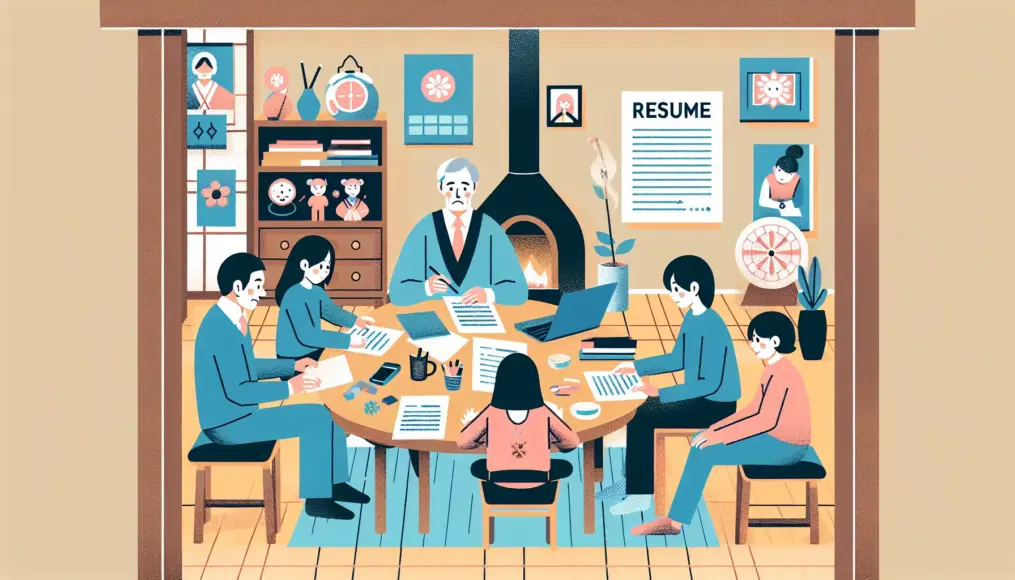When attending a job interview, many candidates may feel perplexed when the interviewer doesn’t introduce themselves.
In fact, there are various reasons and intentions behind this choice that can provide insight into the interview process.
In this article, we’ll delve into why interviewers may forgo self-introductions and offer strategies for handling such situations effectively. We’ll also share essential mindsets and preparation tips to help you succeed in your interview, so be sure to check it out!
- Exploring the reasons behind interviewers skipping self-introductions
- Strategies for interviews without self-introductions
- Preparation tips and mindset for interview success
Why Interviewers Skip Their Introductions
There are several reasons why interviewers might choose not to introduce themselves during an interview.
Understanding this background can help you navigate the flow of the interview more effectively.
In this article, we’ll explore the intentions behind interviewers’ choices and their focus on time efficiency.
Understanding the Interviewer’s Intent
Often, when an interviewer omits their self-introduction, they have a specific purpose in mind.
Many interviewers prioritize assessing the candidate’s abilities and personality rather than sharing their own background.
By skipping their introduction, they aim to quickly dive into questions and engage in a more interactive conversation with the candidate.
Recognizing this intent allows candidates to respond appropriately during the interview.
- Interviewers prioritize evaluating candidates
- Skipping introductions helps maximize time
- There’s an intention to ask questions sooner
The Importance of Time Efficiency in Interviews
In today’s interviews, time efficiency is highly valued.
This is especially true when multiple candidates are being interviewed, as interviewers need to gather as much information as possible within a limited timeframe.
By omitting their introductions, they strive to make the most of the interview time available.
In such situations, candidates are encouraged to take the initiative and actively promote themselves.
To enhance your chances of success, consider checking out common interview questions to avoid failure and pave your way to success.
- Strategies for using interview time efficiently
- The need to evaluate multiple candidates
- The importance of proactive self-promotion
Strategies for When Interviewers Skip Self-Introductions
If you find yourself in an interview where the interviewer doesn’t introduce themselves, it can understandably make you feel uneasy.
How you respond in such situations can significantly impact the success of your interview.
In this article, we’ll discuss how to decide whether to start with your own introduction and effective questioning techniques to draw out information from the interviewer.
Deciding Whether to Start with Your Own Introduction
When an interviewer omits their self-introduction, it’s crucial for the candidate to determine whether they should introduce themselves.
While a self-introduction serves as an opportunity for self-promotion, it’s also important to be respectful of the interviewer’s preferences.
Consider the possible reasons behind the interviewer’s decision not to introduce themselves and clarify your own stance.
Keep in mind that this decision can significantly influence the flow of the interview.
- Take the interviewer’s preferences into account
- A self-introduction is an opportunity for self-promotion
- Adjusting to the interviewer’s flow is key
Effective Questioning Techniques to Draw Out Information
When the interviewer skips a self-introduction, it can be advantageous for candidates to ask questions that help elicit information from them.
By posing specific questions, you can gain insights into the interviewer’s mindset and the company culture.
For instance, asking questions like, “What’s the atmosphere like in this workplace?” or “What kinds of individuals tend to thrive here?” can be very effective.
This approach not only fosters better communication with the interviewer but also increases your chances of showcasing your own strengths.
If you’re unsure about how to structure your self-introduction or what to include, you might find it helpful to consult a guide with self-introduction examples for college students! Key tips for success!.
- Understand the interviewer’s intentions through questions
- Specific questions yield better results
- Enhance communication flow
How to Prepare for an Interview Without Self-Introductions
When interviewers skip self-introductions, it’s crucial for candidates to have the right mindset.
It’s completely natural to feel anxious or nervous in such situations, but with the right approach, you can handle it gracefully.
Here, we’ll discuss some techniques to ease your nerves and how to make the most of opportunities to showcase yourself.
Techniques to Ease Your Nerves
Feeling nervous on interview day is a common experience.
During such moments, incorporating deep breathing and light stretching can be very helpful.
Deep breathing can provide a relaxing effect and help calm your mind. Additionally, light stretching improves blood circulation and can refresh your mood.
By practicing these simple techniques, you can approach your interview with confidence.
- Relax with deep breathing
- Incorporate light stretching
- Prepare to boost your confidence
Don’t Miss Opportunities to Showcase Yourself
Even without a self-introduction, there are plenty of chances to promote yourself during the interview.
When responding to questions, weave in your experiences and skills to naturally highlight your strengths.
It’s also effective to bring up topics that might interest the interviewer.
Keep an eye out for opportunities to convey your strengths and appeal.
Especially, it’s important to prepare for common interview questions. For more details, check out How to Tackle Common Job Interview Questions: Your First Step to Success.
- Answer questions with specific examples
- Highlight your experiences and skills
- Bring up engaging topics
Preparing and Practicing for Interview Success
To ace an interview, thorough preparation and practice are crucial.
This is especially true when the interviewer doesn’t introduce themselves, which requires an even more strategic approach.
In this article, we’ll delve into practical exercises through mock interviews and how to leverage feedback effectively.
Practical Practice Through Mock Interviews
Mock interviews offer an excellent opportunity for realistic practice.
Enlist the help of friends or family members to simulate an actual interview experience.
This is a great chance to understand how an interviewer might perceive your responses.
Moreover, when the interviewer doesn’t introduce themselves, you can practice how to make a strong self-presentation.
Through these exercises, you’ll build the confidence needed to tackle the real thing.
- Get help from friends or family
- Practice as if it’s a real interview
- Experiment with self-presentation techniques
Making the Most of Feedback
After your mock interview, it’s essential to gather feedback.
Listening to others’ opinions on your content and body language can reveal areas for improvement.
This is particularly useful when reflecting on how you answered questions without an introduction from the interviewer.
By using this feedback to guide your next practice session, you can enhance your self-presentation skills even further.
Additionally, understanding the intent behind common interview questions can help you respond more effectively. For guidance, check out our resource on Mastering Your Interview: Understanding Question Intent for Effective Responses.
- Seek feedback after mock interviews
- Reflect on your performance to identify areas for improvement
- Use insights for growth in your next practice sessions
Conclusion
Even if the interviewer doesn’t introduce themselves, being well-prepared and having the right mindset can significantly increase your chances of success.
It’s essential to practice conveying your strengths clearly, making use of mock interviews and feedback.
With the right mental preparation and practice, you’ll be able to approach the interview with confidence.
- Understand the reasons why interviewers may not introduce themselves
- Practice techniques to ease your nerves
- Learn effective self-promotion strategies
Wishing you all the best in your interview!
Feel free to share your thoughts or questions about this article in the comments below.



Comment